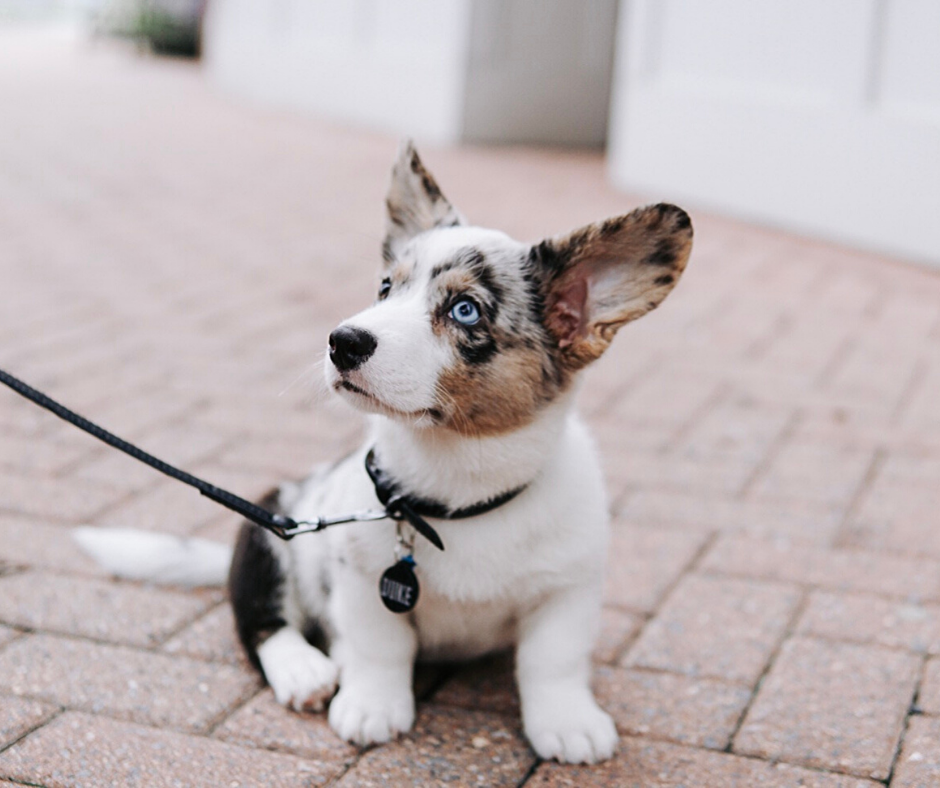Socializing your new puppy + socialization checklist
I’ll be the first to admit my two dogs are not the best behaved pups in the room. But we tried our best to make sure we set our dogs up for success by socializing them at an early age to a number of different situations and scenarios. Navy and Duke won’t bat an eye when they hear fireworks go off. Thunderstorms don’t bother these two! Garbage trucks, moving vans — no problem! With that, there are definitely certain things that Navy and Duke do not like. Had we properly socialized them to all environments at an early age, they would not be averse to some scenarios.
I know, I know, this post is long overdue. We took a brief hiatus from our Puppy 101 blog series, but no need to fear, we are coming back with some awesome blog posts to help guide you through your first year of having a new puppy in the home. Read on for our thoughts and tips on how to properly socialize your new puppy!
Besides teaching your puppy its name, how to sit, stay, and relieve itself outside, socialization is the best thing you can teach your new puppy. Proper socialization to all elements is absolutely critical to how your new puppy will react to certain scenarios later on in life. I mean, don’t you want your pup to be the goodest boy or the bestest girl at all times?
But what exactly is socialization? Basically, socializing your dog is the process of preparing your dog to not have a negative reaction with certain activities, different animals, people of all shapes and sizes, and places. It involves making positive associations to create a well-rounded confident pet. Think of it this way, you are helping your pet be more comfortable in all situations.
Why is this so important? Why should you socialize your dog? As soon as a new puppy is born, they are like a blank slate. As they grow to be a few weeks of age, they start to become incredibly impressionable. Dogs that are properly socialized to a broad range of positive experiences will help the pup be more stable and have better coping skills. Dogs that aren’t properly socialized can be fearful of new experiences, afraid and reactive when meeting people, and have anxiety when visiting new places. Simple as that!
The best time to socialize your dog is as soon as they join your family, whether as a puppy, an adolecent, or an adult dog. Ideally, you would want to start introducing your dog to different people, situations, sounds, and environments and make the experience as positive as possible. Bring a big bag of treats with you and feed your pup treats as they experience a loud bang, see a tall man with a hat, witness someone sweeping the floor, etc.
Besides introducing your puppy to sounds and people, you also want your pup to be comfortable with handling. Be gentle when holding your puppy in different positions and touching their paws, muzzle, ears, and tail. Doing this will help your dog be more confident around humans in general, especially when at the vet and groomers’!
Pro Tip: Keep the interactions pleasant, positive and unthreatening. Never force your puppy into an interaction or situation. Try your best to keep your socialization practice natural and authentic!



Adding a new furry, four-legged member to your family can be overwhelming. With jugging potty training, general puppy training, and the late night whining, we tried to make your socialization journey easy by creating a list of various distractions to introduce your pup to.

As a reminder, we are not professional dog trainers by any means. Please consult with a professional if you are experiencing aggression from your dog.
Did you like this post? Share it or save it for later using one of the buttons below. Check out another one of our Puppy 101 blog series for tips on potty training, a new puppy checklist, and more!






1 COMMENT